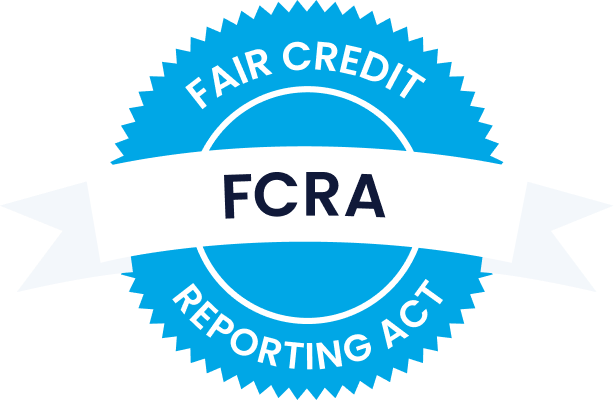Periodically raising your rent price is crucial to running a successful rental property business. Over time, your operating costs will increase, and inflation will chip away at your bottom line. As a result, you’ll need to adjust your rent upwards to maintain your cash flow and earn a healthy return on your investment.
Unfortunately, your tenants may not be thrilled when they find out you’re hiking their rent! After all, no one enjoys seeing their bill payments go up. You may alienate your existing tenants, causing them to seek a new rental property once their current lease expires. The prospect of upsetting your tenants may make you feel nervous and shameful to consider increasing your rent, even when warranted.
However, with sensible planning and thoughtful communication, you can safely raise your rent without provoking complaints from tenants. Follow the tips below to keep your rental profitable and your tenants happy.
Tip #1: Determine how much to raise your rent
Your first task is to determine how much you’ll increase your rent. It’s crucial to get this number correct for two reasons:
- Your new price must be high enough to cover your operating costs. If you consistently shortchange yourself, your profit will decline over time.
- Your new rent price needs to be low enough to appeal to renters and minimize tenancy turnover.
Essentially, it’s a balancing act: you want to keep pace with inflation and rising business costs while encouraging your tenant to renew their lease.
So, what’s a reasonable amount for increasing your rental rate each year?
There’s no one answer for each rental property, but a general rule of thumb is to raise your rent between 2% and 5% annually.
There are three primary factors to consider when assessing how much to raise your rent:
- Your operating expenses
- The average rent price in your location
- Renovations you’ve done to your rental
Rental property expenses
Keeping up with your operating costs is crucial if your goal is to maintain a consistent profit each year. Examine your budget line by line to determine how high your most common operating expenses have risen. These can include:
- Property taxes
- Property insurance premiums
- Repairs and maintenance
- Utilities
- Landscaping
- Tenant screening fees
- Garbage collection
- Property management fees
- Marketing and advertising
- Professional services (accounting, legal, etc.)

Comparable rental rates in your location
Naturally, the higher your expenses have risen, the more you can justify hiking your rent price. However, it’s vital to understand that your monthly expense total should never solely influence your rent price increase. If you follow this strategy, you risk overcharging for your rental and dissuading renters from becoming your tenants. Ultimately, it’s best to charge what the market will bear.
- Researching price trends for rental properties in your area is essential to ensure you charge a fair rent fee. You can obtain the information you need by:
- Browsing rental listing websites like Craigslist, Kijiji, and Realtor to see current rent prices on comparable rental properties
- Using a rent comparison tool like Rentometer to learn the average rent price in your area for rental units similar to yours
- Attending local real estate meetups to hear presentations and speak with attendants about market trends
Renovations
If you’ve done significant upgrades to your rental, you can justify charging a rent price much higher than your current one. Just make sure that the amount you choose aligns with prices for properties that resemble your property.
Tip #2: Follow the rent control laws in your jurisdiction
In Canada, each province and territory has rent control laws to protect tenants from predatory pricing by landlords. It’s your responsibility to ensure you comply with these regulations.
Rent control policies dictate the following:
- How often you’re allowed to raise your rent
- The maximum amount you can increase your rent each lease renewal period
- Whether or not you can increase your rent to the market rate if your tenant vacates your rental unit (this is called vacancy decontrol).
For example, In Ontario, property owners can increase their rent price once every 12 months for an existing lease by up to 2.5%. However, should the current tenant voluntarily move out, they’re free to charge whatever rate they wish for the replacement tenant (meaning vacancy decontrol is allowed).
Here’s a summary of each jurisdiction’s rent increase guidelines for 2023.

Tip #3 Raise your rent gradually each year
It’s usually unwise to postpone raising your rent many years into the future. By then, your expenses may have grown so high you’ll have no choice but to saddle your tenants with a steep rate hike. As a result, don’t be shocked if they become upset, pack their belongings, and leave.
Gradually increasing your rent over time places less pressure on your tenants’ finances. They’ll have more time to adjust their budgets and grow accustomed to the higher price.
You can inform new tenants in advance by stating in the lease that you expect to increase rent prices for the next three by a certain percentage. That way, they know what to expect once they sign on the dotted line.
Tip #4: Provide your tenants with plenty of notice
In most provinces, you’re required by law to provide your tenants with a minimum number of days (usually 90) of written notice of a rent increase. However, this time frame can vary based on certain factors, such as whether the tenancy is monthly or weekly. You must also include in your document all the relevant details mandated by your province’s legislation.
Regardless of the regulations, the earlier you notify your tenant of the impending rent hike, the better. By informing them sooner, you allow them more time to prepare and save additional money if necessary. They’ll appreciate the courtesy and be more inspired to stay rather than move out.
Tip #5: Be open and honest about why you’re increasing your rent
Being transparent and candid with your tenant can help you avoid complaints and confrontations. Here’s how you can approach communicating a rent increase:
- Explain that you’re facing rising expenses and reference specific examples, such as property taxes and insurance premiums. However, avoid citing inflation as a factor in your rent hike, as not all tenants may understand or relate to the concept.
- Provide data showing comparable rent prices in nearby properties. If your tenant sees evidence that your new rent price is reasonable, they’ll be more willing to stay.
- Provide details about local rent control laws. This will show your tenant that you fully comply with each regulation and aren’t practicing price gouging.
- Note any improvements you’ve made to the property during the year, such as replacing the floorboards, purchasing a new fridge, or remodelling the bathroom. Explain that these upgrades will help keep the property up to date and enhance the living conditions.
Close the letter by explaining to your tenant that you’d like them to stay and are happy to answer any questions or concerns they may have. Remember: be professional, respectful, and friendly in your tone.

Tip #6 Add incentives to encourage your tenants to stay
Suppose your current tenant has been renting your property for many years. They pay their rent on time and keep the unit clean and tidy. In that case, consider throwing in some incentives to encourage them to renew their lease despite the rent increase:
- Offer a gift card
- Perform some complimentary repairs and maintenance, such as steam cleaning the carpet
- Purchase a dishwasher
- install an air conditioning unit
- Do minor renovations with input from the tenant – for example, repaint the walls in the colour of their choice
- Offer a free or deeply discounted amenity, such as Wi-Fi
Few people will say “no” to saving money on rent, so consider offering a discounted rate for tenants who choose to stay long-term.
For example, you can waive the rental fee for the first month upon lease renewal. Or you can offer to reduce the rent increase by 1% if the tenant chooses to renew 90 days before the current lease ends. You can also propose a two-year lease agreement with a promise to freeze the rent for the second year.
Our Final Thoughts
As a landlord, you’ll likely need to raise your rent periodically to preserve your profit margins. Naturally, rising operating costs will play a key role in how much you decide to increase your rent. But, in reality, you must set your price based on what the rental market will bear – not simply what your budget dictates.
No tenant likes to hear the news that they’ll be paying more for rent. But if your rent hike is reasonable and fair, and you explain the increase in a friendly and transparent way, they’ll be less inclined to complain. Throwing in a few incentives, especially if they’ve been a respectful and punctual tenant for many years, doesn’t hurt either.
While rent hikes can help you maintain a healthy bottom line, there’s no guarantee your tenant will continue to pay their rent indefinitely. For various reasons, tenants can suddenly fall behind on rent payments, and your expenses can start piling up quickly when they do.
The worst situation is when a tenant refuses to leave your property. Sure, you can file a complaint with your local residential tenancy board to kickstart the eviction process. But you may have to wait many months to present your case. During this time, you’ll be helpless, watching your rental lose money with each passing month. To say this is a nightmare scenario for a landlord would be an understatement!
SingleKey offers the Rent Guarantee program to eliminate this risk of lost rental income by covering your tenant’s missed payments. The program guarantees your rent for up to 12 months, up to $60,000. Plus, you can receive up to $10,000 in property damage and $1,500 in legal fees – and, if needed, you get access to a paralegal team to guide you through a tenant eviction!




